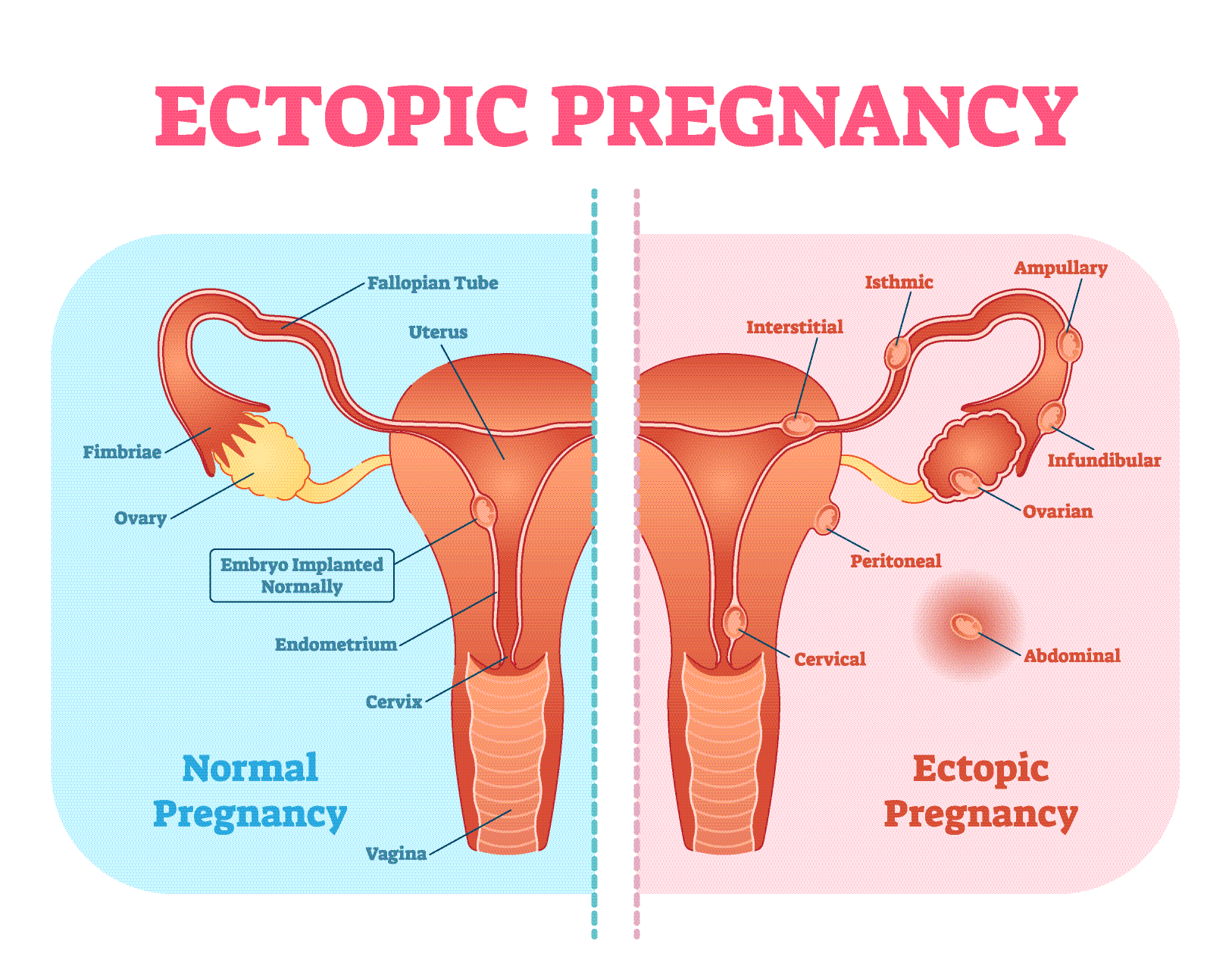Tubal pregnancy is a condition that occurs when a fertilized egg implants and grows in the fallopian tube rather than in the uterus. It’s also known as ectopic pregnancy because it develops outside of your uterus. It’s extremely rare, but it can happen if you don’t take proper precautions. This can be a serious medical emergency, as it often goes unnoticed until it’s too late to save your life. You may have symptoms of this type of pregnancy early on, but they’re usually similar to those experienced by other women who are pregnant. However, if you experience bleeding or pain after sex (this is called implantation bleeding), you should seek immediate medical attention so that your healthcare provider can determine whether or not there’s an actual problem with your reproductive system—and what steps need to be taken next if so!
Fortunately, there are treatment options available to prevent serious complications.
Symptoms of tubal pregnancy
This condition is rare, but it can be serious. You should see a doctor if you have any of these symptoms:
- heavy menstrual bleeding that lasts longer than usual or worsens after ovulation (when the egg is released from the ovary) has occurred;
- unusual vaginal discharge, such as blood or mucus;
- pain during intercourse; and/or
- nausea, vomiting, abdominal pain and diarrhoea.
- Severe pain in your lower back
Any of the above symptoms can be a sign of an ectopic pregnancy, but not all women will experience them. If you have any of these symptoms, it is important that you call your doctor immediately so that they can make sure everything is okay.
What causes Tubal pregnancy?
Tubal litigation is one of the most common causes of tubal pregnancy. It’s a condition where the fallopian tubes are tied to prevent pregnancy. This can also happen when a woman has a fallopian tube that was damaged during an earlier surgery. The fallopian tube connects with the ovary and carries eggs from there to the uterus. But if this tube is damaged, it may not be able to do its job properly, which can lead to tubal pregnancy.
Tubal litigation can also happen if you have another medical condition that affects your reproductive system, such as pelvic inflammatory disease or cancer. You may need surgery to correct this condition if it causes damage to your fallopian tubes or other organs in your pelvis (like the uterus). If you have had previous surgery on your cervix and/or fallopian tubes, you may also be at risk for tubal litigation if you have another surgery in this area later on.
There are other reasons why a woman may have had a tubal pregnancy, including:
- The use of birth control pills that contain ethinyloestradiol and levonorgestrel
- The use of oral contraceptives that contain desogestrel or drospirenone, which can also cause an increased risk of tubal pregnancy
- A previous history of tubal or ovarian surgery
In addition to these causes of tubal pregnancy, some women have no known cause for their condition. In these cases, it’s called an idiopathic tubal pregnancy
Diagnosis
In the case of a tubal pregnancy, it is important to get a blood test. If your doctor suspects that you have had sex without using birth control and that you are pregnant, he or she may order an ultrasound of your abdomen. This will allow him or her to see if there is a visible structure in your uterus (the organ where a baby grows). If there is one, they will then be able to tell whether it has developed into an embryo or fetus.
If this test comes back positive for pregnancy and shows no signs of implantation (when the fertilized egg attaches itself inside the uterus), then we recommend seeing an obstetrician who specializes in high-risk pregnancies such as those involving tubal pregnancies.
The obstetrician can help further evaluate your situation and provide recommended care options. This will be based on current medical knowledge about how best to manage these types of cases when diagnosed early enough. Complications can occur due lack of adequate prenatal care provided by physicians who specialize in general obstetrics/gynaecology practices which do not routinely treat patients with complicated disorders requiring specialized treatment.
Treatment
Tubal pregnancy is treated with surgery. The surgery may be performed laparoscopically and open the abdomen (through a large incision) to remove the fallopian tube. If you have had a tubal pregnancy, you may need to wait until your next menstrual period before having any additional tests or procedures done on your fallopian tubes.
The purpose of this waiting period is to make sure that any remaining tissue from the pregnancy has passed from your body. If you have had an ectopic pregnancy, you will need to wait at least 6 weeks before having surgery on the fallopian tubes.
If you are considering having surgery to remove your fallopian tubes, it is important that you discuss the risks and benefits with your doctor. There are also some other options available for women who want permanent sterilization but do not want surgery
Takeaway.
Unlike other types of pregnancy, tubal pregnancy is one that many women don’t even know about until it’s too late. That’s because the symptoms are often subtle and can make you feel like nothing’s wrong at all—until you start experiencing them.
Tubal pregnancy can lead to serious complications like pre-eclampsia, which is a condition where there is high blood pressure, fluid retention, and protein in your urine. If left untreated, this could lead to severe medical issues like kidney failure or a stroke. If you do get pregnant while having an IUD in place, it’s important to talk with your doctor about what you should do if you suspect that you might be pregnant.






